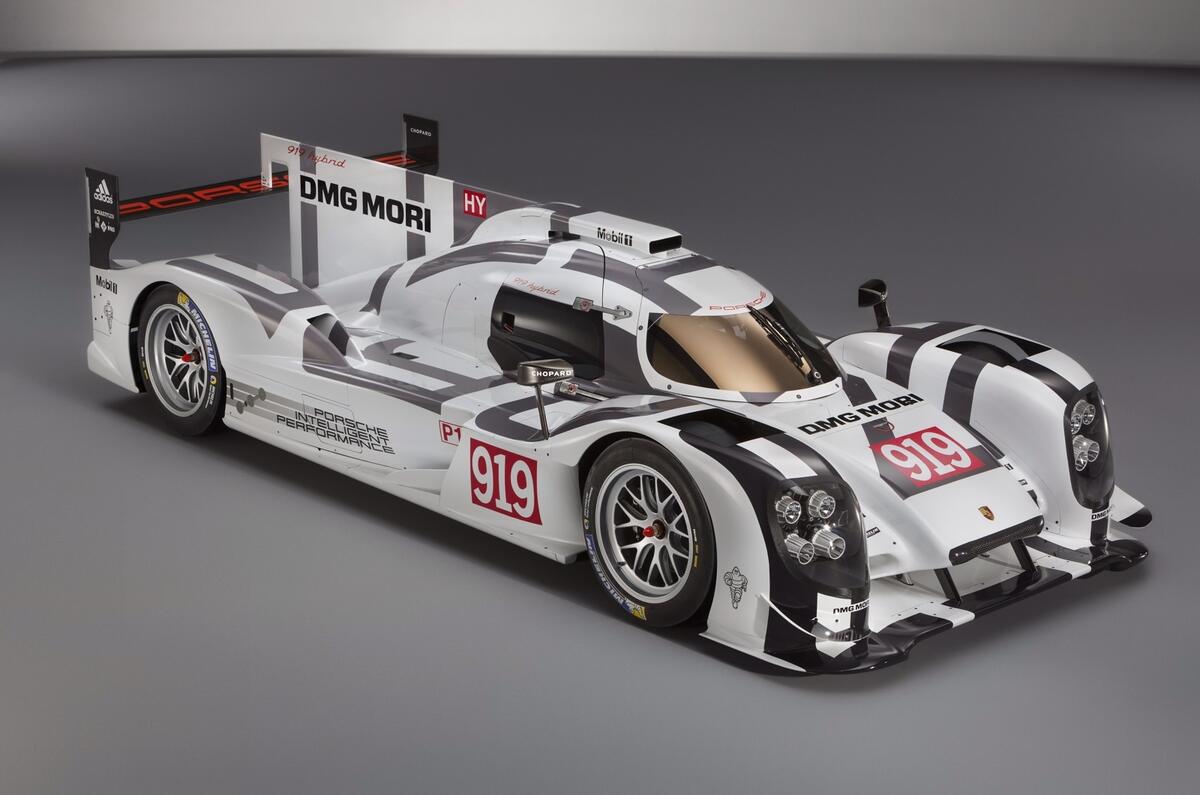Amazingly, it's been 16 years since Porsche last entered a car capable of winning outright in the Le Mans 24 Hours. That machine was the 911 GT1-98. Naturally, it won.
Porsche is very good at winning at Le Mans. Starting in 1970, when Richard Attwood and Hans Hermann wrestled the fearsome 917 to glory, Porsche has won the endurance classic a record 16 times. Add in class wins, and the German marque has 101 victories at the Circuit de la Sarthe. It's an incredible record - and so when Porsche announced it would return to sports cars with a top-class LMP1 prototype for this year, expectations were high.
The men in charge of Porsche's new 919 Hybrid are well aware of the marque's fabled past. But they're keen to stress that this project is all about the new. An entirely new team of around 200 staff has been formed at Porsche Motorsport's Weissach facility, and they have had to get to grips with all-new machinery - and all-new technology.
Porsche chiefs say the 919 Hybrid LMP1 car is the most advanced racing car the firm has ever built, and that's a result of new regulations for sports car prototypes that promote the use of efficient hybrid systems. The 919 mates a 2.0-litre turbocharged petrol V4 engine with two energy recovery systems (one using thermal energy from exhaust gases, the other using kinetic energy from braking).
Efficiency is going to be the buzzword at Le Mans this year: it's no longer enough to build the outright fastest car. Teams are given an allowed rate of petrol consumption per lap, which is relative to the amount of electrical boost they can use. The top LMP1 cars that will be run by Porsche, Audi and Toyota have an energy recovery capacity of eight megajoules. At Le Mans, the rules will allow them to use 4.64 litres of fuel per lap. With the petrol and energy usage figures set, the key will be how efficiently a car can use that resource.
What's encouraging about the new rules is that, within those constraints, manufacturers have a great degree of freedom. Audi and Toyota are sticking with turbodiesel engines, while Porsche has plumped for a small petrol unit. The two-litre unit, with a maximum speed of 9000rpm, was chosen because small and lightweight, helping to offset the weight of the hybrid units.
Take all that, and Porsche's previous Le Mans success doesn't really count for much. The 1998 GT1-98, while still looking stylish enough that it would still be competitive today, was a car from a different age. While Porsche has remained active at Le Mans in the GT and LMP2 classes, the new LMP1 regulations are a different beast.
But while Porsche's motorsport chiefs talk of 2014 being about learning rather than winning, it's a bit hard to believe. This is Porsche. This is sports cars. This is Le Mans. Winning at Le Mans is what Porsche does.
We'll know more soon. On the same day Porsche unveiled the 919 Hybrid livery at the Geneva Motor Show, the team was about to start testing in Sebring, Florida. It will be the first time the car has run on the same track at the same time as Audi's R18 e-tron quattro.








Join the debate
Add your comment
Would be rather nice....